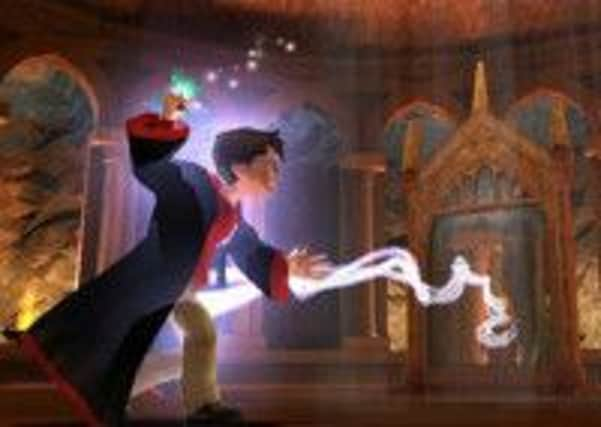Films and video games lead young to original books


But new research suggests films and video games not only encourage reading, they help introduce young people to more demanding books.
A survey of more than 420,000 schoolchildren, including 20,000 in Scotland, found almost all the most-loved books of 2012-13 also exist as films, apps or video games.
Advertisement
Hide AdAdvertisement
Hide AdAccording to What Kids are Reading, a report by Professor Keith Topping of Dundee University, the most popular books are two Harry Potter novels and Suzanne Collins’ Catching Fire, in the Hunger Games trilogy.
But the research also found that novels such as The Hobbit, published in 1937, have found a larger audience thanks to film adaptations.
The largest annual survey of British children’s reading habits found that other forms of media encouraged younger children to take on books an average of 2.4 years above their reading age.
Initial findings from the report, to be published in its entirety next month, show children of primary school age are not only taking on books above their age range, but reading with accuracy and a high level of understanding.
Dirk Foch, managing director of educational software company Renaissance Learning, which published the report’s findings, said: “The importance of reading for pleasure and its positive impact on literacy standards cannot be overstated. These results demonstrate that it’s all about motivation and challenge.
“There may also be some good news for parents who are concerned about the dominance of technology in children’s lives.
“In an increasingly multimedia world, these findings suggest technology can support literacy, rather than act as a distraction.
“Children are clearly drawn to characters, concepts and authors they have seen in games, films, TV ads and promotional tie-ups and if this helps widen and challenge their reading choices, then so much the better.”
Advertisement
Hide AdAdvertisement
Hide AdAlong with the Harry Potter books, the list of top novels also includes JRR Tolkien’s The Hobbit and The Fellowship of the Ring from the Lord of the Rings trilogy. Other entries include fantasy novels Inheritance by Christopher Paolini, The Lost Hero by Rick Riordan and science fiction novel Divergent by Veronica Roth.
Prof Topping said: “We cannot assume that children see the film and then want to read the book, because the opposite may be true. Would books like The Hobbit be on the favourites lists if there were no films? The answer is yes – we know this because The Hobbit was high on the lists before the first film came out. However, since the first film came out The Hobbit has risen up the lists and become even more popular. So films certainly do give a book added value for children.”
But Marc Lambert, chief executive of the Scottish Book Trust, questioned the report’s findings. “Just because a child might be led to read the relevant book after having watched the film or played the game does not mean in itself that that film or game, and the hours in front of a screen watching or playing it, does not limit the imagination,” he said.
“There are, for instance, many academic studies which show that long hours regularly spent by children in front of a screen drastically reduces a child’s attention span and ability to focus on problems, concepts and issues – hardly the stuff of enhanced creativity.
“This survey tells us very little about the supposed merits of technology; if anything, it is a measure of how deeply commodified children’s lives are and how effective marketing is likely to affect their choices.”
Last month, the triennial Programme for International Student Assessment found the performance of Scottish school pupils in reading had stalled, with mean scores roughly in line with those recorded when the exercise was last carried out in 2009.
However, while Scotland continues to lag behind leading nations such as China, Japan and Korea, it still outperforms the rest of the UK in reading.